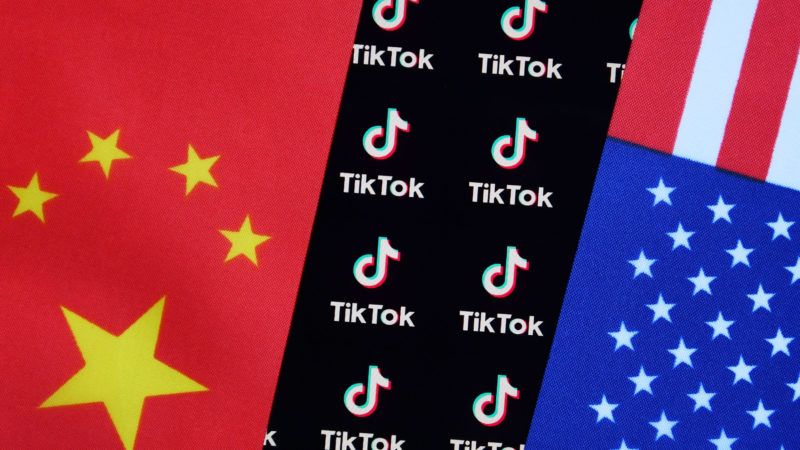Trump Is Trying To Take Away Americans' Access to Popular Apps by Executive Order
Plus: the latest unemployment numbers, Biden apologizes for comment on diversity, Ohio governor gets flip-flopping COVID-19 results, and more…

It's turning into a summer of terrible tech policy, imposed by stunningly clueless members of Congress and a digitally ignorant but executive-order-addicted president. In June, President Donald Trump issued a transparently political Order on Social Media, accusing Twitter of illegally censoring him by countering his dubious comments with more information. Now, Trump is targeting the video platform TikTok and other apps popular in America but owned by Chinese companies.
On Thursday, the White House announced that Trump had signed an executive order—to take effect in 45 days—banning U.S. companies from doing transactions with Bytedance, TikTok's parent company, and with Tencent, the Chinese company behind the popular chat app WeChat.
Tencent is also behind a lot of popular video games, including Fortnite and League of Legends. But the administration is making an exception for Tencent's gaming properties. A White House official told the Los Angeles Times that the Tencent ban only applied as far as WeChat is concerned.
https://twitter.com/jbillinson/status/1291698677376049152
The Trump administration has been hyping its hate for TikTok (and, now, WeChat) as a national security matter. That premise is incredibly thin.
Yes, China's government could compel U.S. user data from Bytedance, but it's hard to imagine for what purpose it would do this or how this would somehow threaten the country's safety. It's not as if TikTok requires users to submit especially sensitive data. And if the kind of data users provide TikTok really is a huge threat in Beijing's hands, then this threat extends to all digital tools made in China. For that matter: The U.S. government can pry user records from American tech companies—and while the Chinese Communist Party poses little threat to individual Americans outside China, the American authorities can use your data to punish you.
In any event, TikTok use is voluntary. The Trump administration has no right to say people can't make that choice, and especially not without a smidgen of real evidence that user data is actually being mishandled. If the administration gets away with banishing TikTok and other apps owned by Chinese companies, it could use this same playbook to take away Americans' access to all sorts of digital tools and services created by non-U.S. tech companies.
You can read Trump's executive order here. Incredibly, one reason Trump offers for cracking down on TikTok is that it allows for misinformation about the new coronavirus to spread. There are obvious First Amendment problems with treating this as a rationale to ban a platform. And as we've all witnessed over the past few months, plenty of American-owned tech platforms are breeding grounds for COVID-19 conspiracy theories—and some of the worst misinformation about the virus has been coming from government officials, including Trump himself.
Trump also slams TikTok because it may suppress content within China "concerning protests in Hong Kong and China's treatment of Uyghurs and other Muslim minorities" at Beijing's behest. Even if that is the case, Trump's move is hardly the opposite of Chinese authoritarianism—more of a continuation. You don't fight censorship with more censorship.
QUICK HITS
BREAKING: Unemployment falls to 10.2% even as U.S. job growth slowed to 1.8 million in July under pressure from pandemic. https://t.co/MXYGdEBFTI
— The Associated Press (@AP) August 7, 2020
• Democratic presidential candidate Joe Biden apologized yesterday after saying in a video that
Earlier today, I made some comments about diversity in the African American and Latino communities that I want to clarify. In no way did I mean to suggest the African American community is a monolith—not by identity, not on issues, not at all.
— Joe Biden (@JoeBiden) August 7, 2020
Anyway, two things can be true: Biden is dangerously over-confident when talking about black voters, and here he's discussing something nobody actually disagrees with. (You can compare the FL/AZ exit polls of the black/Latino vote if you're bored.)
— David Weigel (@daveweigel) August 6, 2020
• In the past few months, "J. Crew, Neiman Marcus, Brooks Brothers and J.C. Penney filed for bankruptcy. Gap Inc. couldn't pay rent on its 2,785 North American stores. By July, Diane von Furstenberg announced she would lay off 300 employees and close 18 of her 19 stores. The impending damage to small businesses was inconceivable." The New York Times looks at how COVID-19 is wreaking havoc on the fashion industry and clothing retailers.
• Ohio Gov. Mike DeWine tested positive for COVID-19—and then tested negative a few hours later:
UPDATE: In a second COVID-19 test administered today in Columbus, Governor Mike DeWine has tested negative for COVID-19. First Lady Fran DeWine and staff members have also all tested negative. pic.twitter.com/0Ixap90mJg
— Governor Mike DeWine (@GovMikeDeWine) August 7, 2020
• What's going on with New York's attack on the National Rifle Association?


Show Comments (404)